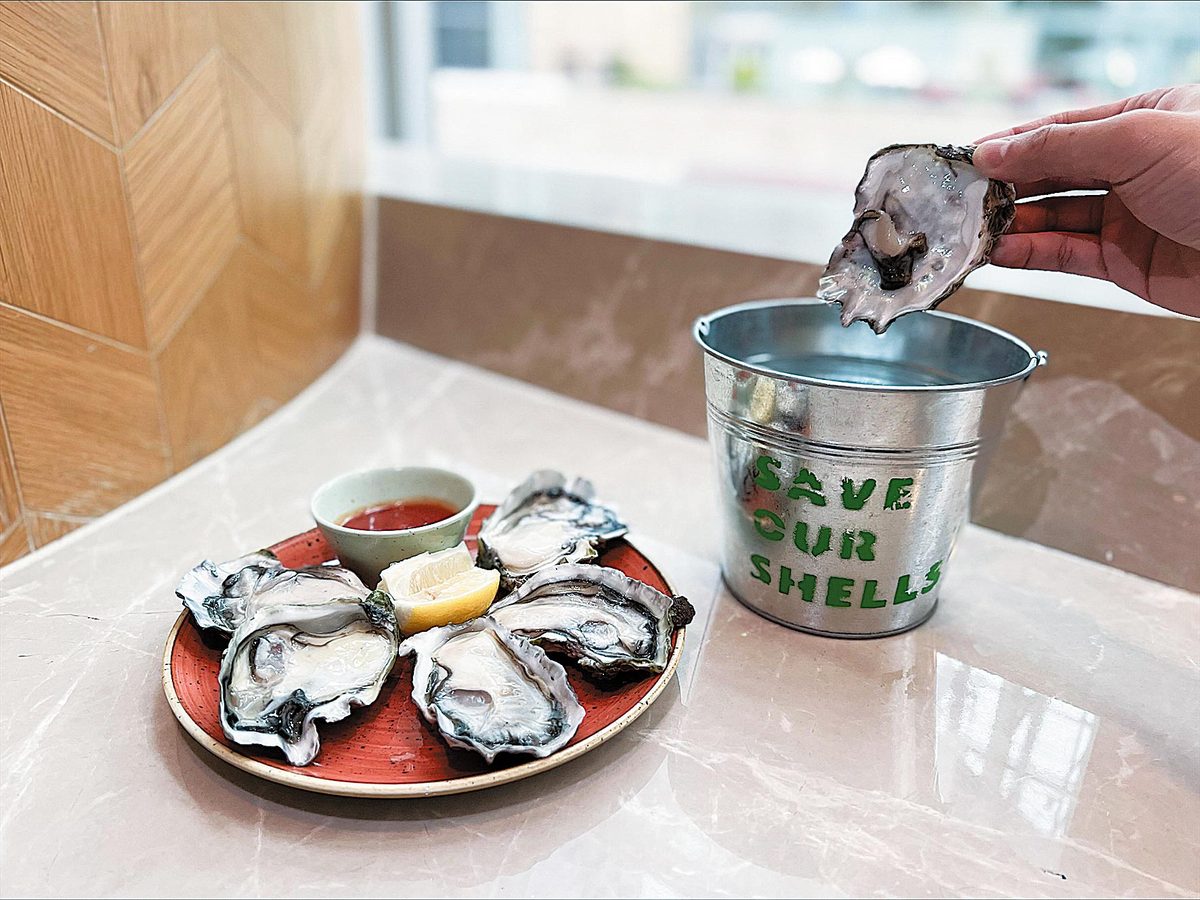Oysters help clear the waters in Hong Kong


Waste crisis
Last year, Hong Kong ranked second for seafood consumption in Asia and eighth in the world. However, Law said, "Most discarded shells were treated as garbage by the food and beverage industry, ending up in Hong Kong's landfills."
In 2020, food waste took up the largest share — more than 30 percent — of the 10,809 metric tons of solid municipal waste each day in Hong Kong. That year, the city's per capita municipal solid waste disposal rate per day rose to 1.44 kilograms, up from 1.27 kg in 2011.
As Hong Kong's three landfills are expected to be full by the 2030s, and local land supply is precious and limited — making it hard to build more landfills, the city faces a huge waste crisis.
In August 2020, TNC launched Save Our Shells, a project aimed at recycling discarded shellfish shells from the local catering and oyster farming industries.
Law phoned and visited many local hotels and restaurants, including Cordis Hotel, a five-star establishment in Mongkok.
Paul Mcloughlin, culinary director of Cordis Hong Kong, who comes from Canada and has lived in Hong Kong for 14 years, was surprised when Law approached him to discuss oyster shells.
"I knew a little about the benefits of oysters, but this was the first time I had learned about their advantages in such a comprehensive way," he said.
Touched by Law's passion, and eager to contribute to the environment, Mcloughlin's team partnered with TNC. Cordis Hotel was the first enterprise to join the project.
With no experience to draw on, the team members designed a recycling system. They bought dozens of buckets, printed "Save Our Shells" in green on the outside of them, and placed one bucket on each dining table at the hotel.
Signs were positioned beside each bucket, introducing the shell recycling project and advising customers to place their discarded oyster shells in the buckets.
After each meal, waiters placed the discarded shells in a bin, before they were washed, sterilized and packed in bags by kitchen staff members. The bags were placed in a room at the hotel to await collection by TNC representatives twice a week.
In November 2020, the hotel first tried recycling in its European-style restaurant and bar that specializes in seafood. Each week, up to 50 kg of oysters was recycled.
After becoming more familiar with the process, the hotel tried the recycling process in its buffet restaurant in August last year.
The hotel's recycling rate was more than 50 percent, with an average of 200 kg of oyster shells recycled every week. It recycled 6.2 tons of shells from October 2021 to July, even though it was closed for three and a half months due to the COVID-19 pandemic.
Mcloughlin was proud that food waste was reduced during this process, and that the hotel enabled thousands of customers to learn about oyster recycling.
The hotel footed all costs for recycling on its premises, such as human resources, storage space, and production of materials.
"I have lived in Hong Kong for 14 years, and it is my second hometown. I feel an obligation to take responsibility for protecting the city's environment," Mcloughlin said.
He called for more restaurants to recycle oyster shells, as by doing so, they can help consolidate resources, share transportation costs and educate consumers.
Eleven outlets in the local restaurant industry had taken part in the Save Our Shells project by the end of July, with TNC receiving five or six calls from restaurants each month to learn about the recycling project, Law said.
























